House Committee Investigates Iranian Influence At Princeton University
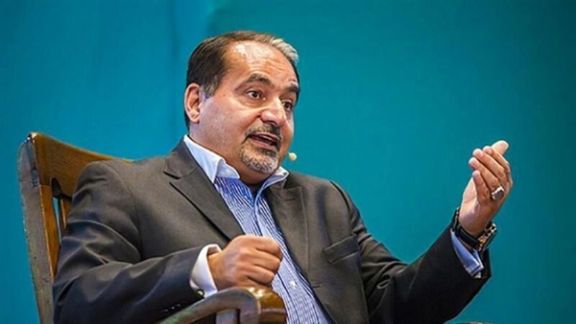
A House Committee has initiated an inquiry into the role of Hossein Mousavian at Princeton University, suspecting him of advancing Iran's interests.

A House Committee has initiated an inquiry into the role of Hossein Mousavian at Princeton University, suspecting him of advancing Iran's interests.
The House Committee of Education and the Workforce is probing the Pro-Tehran pundit who served as a key figure in Iran’s nuclear negotiations with the international community until 2005. He is currently a Middle East Security and Nuclear Policy Specialist at the Program on Science and Global Security at Princeton.
Twelve Republican committee members have expressed concerns about Mousavian's influence on campus, citing his participation in Qassem Soleimani's funeral and an appearance on Iranian TV. Mousavian denies the allegations.
The investigation aims to assess potential threats to national security and underscores broader worries about malign influences infiltrating US education.
Representative Virginia Foxx has emphasized the 15-year tenure of Mousavian at Princeton as a troubling instance of individuals associated with hostile regimes within US education.
Notably, the revelation that STRATCOM hosted Mousavian as a speaker in August 2023 has raised concerns among House Committee members and the Armed Services Committees. Mousavian clarified that his talk at STRATCOM focused on peace in the Middle East.
Despite a recent declassified US intelligence report asserting that Iran is not currently engaged in key nuclear weapons activities, European reports from 2023 suggest the presence of an active atomic weapons program. Princeton University has yet to respond to inquiries regarding the investigation.
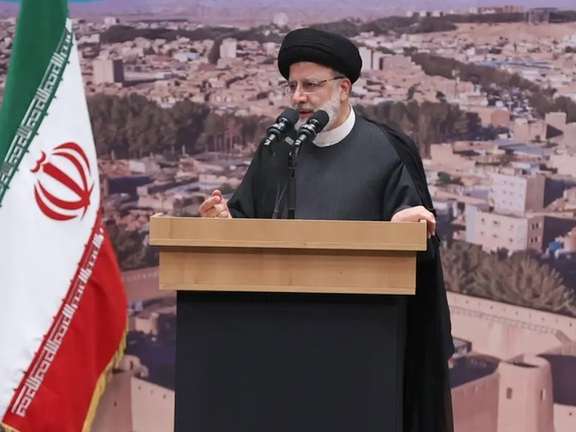
In a rare recognition of the country the regime has until now refused to name, Iranian President Ebrahim Raisi has once again called for a swift end to Israel.
He said Sunday,"I hope that God will liberate Palestine as soon as possible, and we witness the final moments of Israel's existence and celebrate its end."
The Iranian regime has consistently called for Israel's destruction, and until now, refused to call it anything other than 'the Zionist entity'. Demonizing the world's only Jewish state has long been a justification for Iran's substantial financial and military support to militant groups like Hamas in Gaza which waged war on Israel on October 7, murdering at least 1,200 mostly civilians and taking another 240 into Gaza.
So strong is the mission since the establishment of the Islamic Republic that while the Iranian economy is on its knees, the regime continues to fund hundreds of millions of dollars each year into its proxies across the region.
In spite of funding the group at least $100m a year and supporting it with military and technical aid, Reuters reported on Wednesday that the Iranian regime was unaware of Hamas' October 7 terror attack against Israel. The report quoted three anonymous senior officials as stating that in a recent meeting in Tehran, Khamenei told Hamas leader Ismail Haniyeh: “You gave us no warning of your Oct. 7 attack on Israel and we will not enter the war on your behalf.”
Hamas later denied the claims backed up by the fact that there had been months of top level meetings between the regime, Hamas and Lebanese Hezbollah in the months leading up to the war.
On Sunday, the supreme leader also called on Muslim nations to hamper Israel economically as the calls for Israel's end continue unabated.
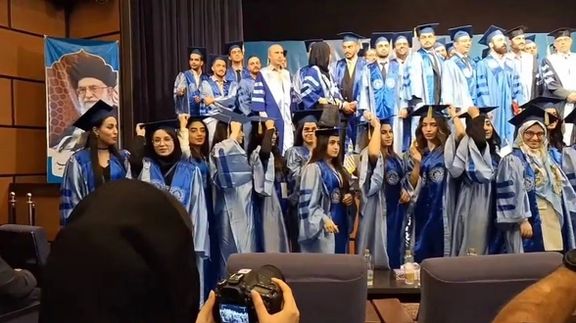
The chancellor of a university on Iran's Kish Island has reportedly resigned following a graduation ceremony where female students appeared without head-coverings, defying hijab rules.
Photos and videos published on social media showed the majority of girls at a small graduation ceremony on Kish Island's international campus of Sharif University of Technology wearing graduation hats with their hair flowing over their shoulders instead of covered with headscarves.
In a publicly released letter to the university's board of trustees on Saturday, Ali Selk-Ghaffari, the university's chancellor, offered his resignation. He referred to the girls' action as "outside [accepted] norms" and expressed regret that some alumnae had not complied with "academic regulations and dignity."
Kish Island, off the southern coast of Iran in the Persian Gulf with a population of around 40,000, is a free trade zone and a very popular destination of tourists. The international campus of Sharif University of Technology, one of Iran's most prestigious universities, has around 900 students.
The girls' bold defiance of compulsory hijab has angered pro-establishment media and social media users, leading to criticism of authorities for perceived lapses in enforcing hijab rules.
In a statement on Saturday, the public relations department of Sharif University of Technology reported that the chancellor and educational deputy of the university refused to stay in the ceremony until the end and left the venue due to observed violations of hijab rules during the awards ceremony.
In its statement, the university apologized to the “esteemed families of martyrs, veterans and all who are devoted to the Islamic Republic” and vowed to take serious and immediate action against those who defied the rules as well as others whose carelessness caused the incident.
Graduation ceremony without hijab is disdaining the existence of the Islamic Republic! From the south to the north of the country, from the east to the west, progressive students have taken sleep from the eyes of the [regime] criminals, oppressors and bullies!,”Daneshjooyan-e Pishro (Progressive Students), a loose network of dissident students which has been active in various universities since 2019, tweeted about the incident.
Other student groups have also welcomed Sharif University’s defiance of hijab at their graduation ceremony. A student newsletter run by dissident students at Tehran’s Amirkabir University of Technology called their move “civil disobedience”.
Since Mahsa Amini’s death in custody after being arrested for what morality police considered as “unfitting hijab” in September last year which sparked several months of protests across the country, particularly in universities, defiance of hijab has hugely grown in the Islamic Republic.
In recent months authorities have adopted a strict initiative to enforce the hijab rules at any cost including measures such as impounding cars if passengers defy the hijab rules, shutting down businesses such as cafes, restaurants, and shopping malls, and banned hijab-defiant celebrities from acting in films.
In October authorities revoked the medical license of a female surgeon in Amol in northern Iran after she appeared at a public awards ceremony on Doctors Day without wearing the hijab. Dr Fatemeh Rajayi-Rad was forced to appear in full hijab on state media and apologize for causing offense.
In another instance, the CEO of a prominent pharmaceutical company, Haleh Hamedifard, who had a headscarf on, was denied entry to the health ministry to attend a meeting with the officials because hijab enforcers stationed at the ministry said the tunic she had worn over trousers was too short.
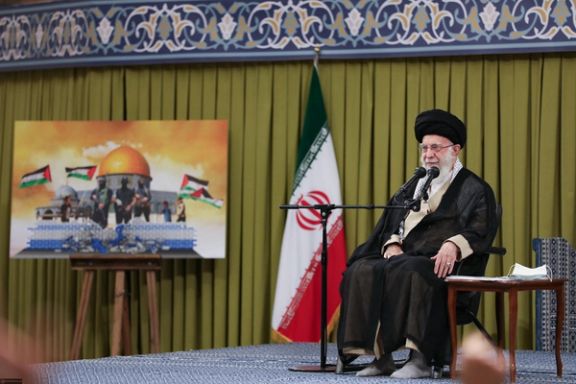
Ali Khamenei, the Supreme Leader of Iran, has urged Muslim states with political connections to Israel to temporarily sever ties as a result of its attacks on Gaza.
"Some Islamic governments have condemned Israeli crimes in assemblies while some have not. This is unacceptable," he said Sunday, though it was unclear which nations he was referring to as nations across the Arab world all have stood by Gaza in the wake of the war declared by Hamas on October 7. Israel's relentless retaliation has seen several Muslim countries expel Israeli ambassadors, including Turkey and Jordan.
Iran, a financial and military supporter of Hamas, has lauded the attacks on October 7 which saw 1,200 mostly civilians killed in Israel and 240 more taken hostage, as a "success", while denying direct involvement.
His calls for severing ties come on the heels of Khamenei's recent call for an Islamic embargo on oil and food to Israel during a summit between the Organization for Islamic Cooperation and the Arab League on November 11, where Muslim states did not reach a consensus on imposing extensive sanctions on Israel, as suggested by Iran's President Ebrahim Raisi.
Khamenei delivered his latest remarks at an exhibition showcasing the "latest achievements" of the Islamic Revolutionary Guard Corps' Aerospace Force, introducing the Fattah 2, an upgraded version of Iran's purported first hypersonic missile.
He criticized Israel for falling short of its goal to destroy Hamas despite extensive bombings in Gaza. Israel however, has destroyed large swathes of Hamas infrastructure across Gaza from command centers to parts of its extensive tunnel network, in addition to killing at least 5,000 terrorists, including numerous high level commanders, in its mission to eradicate Gaza of Hamas.
This weekend, the Crown Prince and Prime Minister of Bahrain became the first Arab leader to unequivocally condemn the Hamas attacks which saw women, children and the elderly savagely murdered in the single most deadly day for Jews since the Holocaust, calling the attack "horrific". The country, which normalized ties with Israel in 2020 under the Abraham Accords, has stood firm in condemning Israel's retaliation but the rare branding of Hamas's attacks as "barbaric" rang loud across the Arab world which has as yet, largely avoided direct criticism of the proscribed terror group.
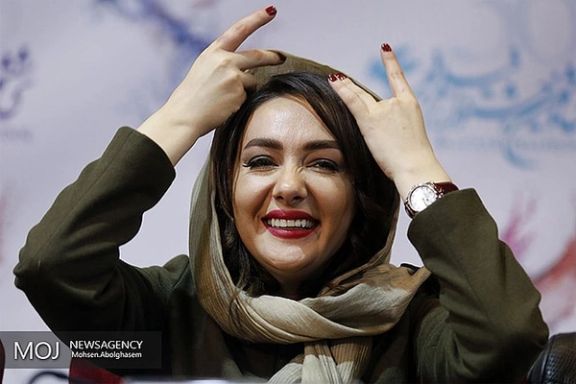
Iranian actress Hanieh Tavassoli has been handed a six-month prison sentence for content shared on social media amidst worsening crackdowns.
The charges against her include "publishing false information with the intent to disturb public opinion." The prison sentence has been suspended for three years, as conveyed by the lawyer.
Speaking in an interview with the semi-official news agency ISNA on Sunday, her legal advisor, Maryam Kian Ersi, detailed that Tavassoli is also obligated to pay a fine of 150 million rials (approximately 300 USD).
Tavassoli, who was apprehended at her residence in September, has since been released on bail. The arrest was linked to content shared on her social media accounts, particularly a tribute to Mahsa Amini, who tragically lost her life in morality police custody. The incident coincided with national protests commemorating the one-year anniversary of Amini's death.
Several weeks preceding her arrest, Tavassoli took to Instagram to express her views, indicating a perceived decline in religious authority and clerical influence in Iran. She emphasized the necessity for Iranian cinema to align itself with the "intelligent, rebellious, and courageous youth and society of today."
Tavassoli joins a growing list of celebrities, athletes, and public figures who have faced arrests and penalties for expressing anti-regime sentiments online. Consequences have included job losses, travel bans, and frozen bank accounts.
Since the death of Mahsa Amini in September 2022, anti-regime demonstrations have witnessed a widespread rejection of the mandatory Islamic head covering, known as hijab. The symbolic protest serves as a collective expression against the enduring power consolidation of the clerical establishment in Iran since the 1979 revolution.

The Israeli military said on Sunday that Yemen's Houthis had seized a cargo ship in the southern Red Sea as it was sailing from Turkey to India, calling this "a very grave incident on a global level".
In a social media post, the military said that the vessel, which it did not name, was not Israeli-owned and had no Israelis among its crew. Arabic-language media outlets say there are 52 crew members aboard the vessel. Israeli PM's office says onboard the vessel are 25 crew members of various nationalities including Ukrainian, Bulgarian, Filipino and Mexican.
It is not yet clear how the Houthis mounted the ship, but Journalist Ben Caspit says there was unverified report that they landed on it by helicopter.
The hijacked ship is Galaxy Leader, registered under a British company, which is partially owned by Israeli tycoon Abraham Ungar who goes by Rami. He is the founder of Ray Shipping Ltd., and is known as one of the richest men in Israel. The vessel was leased out to a Japanese company at the time of the hijacking.
The Israeli Prime Minister's Office issued a statement after the hijacking of the ship, calling it "an act of Iranian terrorism that expresses a leap in their aggression", asserting that "no Israelis were present on the ship and the ship is owned by a British company operated by a Japanese company."
"This is another Iranian act of terrorism that represents an escalation in Iran's belligerence against the citizens of the free world, with concomitant international ramifications vis-a-vis the security of global shipping routes."
In 2021, the Revolutionary Guards attacked the MV Helios Ray in the Gulf of Oman. There was no retaliation after the attack on the vessel, which was also owned by Tel-Aviv based company called Ray Shipping.
Earlier on Sunday, the spokesman for Yemen's Iran-aligned Houthi military, Yahya Sarea, said the group will target all ships owned or operated by Israeli companies or carrying the Israeli flag, according to the group's Telegram channel. The spokesman called on all countries to withdraw their citizens working on the crews of any such ships.
Iran's Foreign Minister Hossein Amirabdollahian said that “resistance groups allied to Iran are cleverly adjusting pressure" on Israel and its supporters. The ‘resistance' front or axis is the term coined by the Islamic Republic to describe its logistic, financial and intelligence support for the Syrian regime, the Lebanese militant group Hezbollah, and dozens of militia groups in the region, several of which were created by Iran.
"Resistance groups still have inactivated capacity (for pressure on Israel)," he added.
Last Wednesday, Amir-Abdollahian denied responsibility for a drone attack that was intercepted by the US Navy in the Red Sea. According to the Pentagon, a US Navy warship shot down a drone early Wednesday morning that “originated from Yemen and was heading in the direction of the ship.” Although the Pentagon did not specify who was behind the attack on November 15, the incident occurred after Iranian-backed Houthi forces in Yemen vowed to target Israeli ships in the Red Sea.
Iran-backed Islamist group Hamas launched a surprise terror attack on Israel on October 7, killing at least 1,200 civilians and taking at least 240 hostages, after which Israel started a massive retaliation against Gaza. It has seen since Iran-backed proxies around the region instigating attacks from Lebanon, Syria, Iraq and Yemen.
The alleged Houthi attack comes after calls by Iran’s leader Ali Khamenei to ban shipment of oil and food to Israel. His call was repeated by his ultra-hardliner loyalists such as Hossein Shariatmadari, who runs the Kayhan Daily newspaper in Tehran. The firebrand Hossein Shariatmadari called for blocking "maritime traffic in the Persian Gulf, Bab-el-Mandeb Strait, the Oman Sea, the Red Sea and the Suez Canal,” in a Kayhan Daily editorial, which is funded by the Supreme Leader.
Prior to this, an Iranian ultraconservative lawmaker also claimed last week that Houthis had targeted Israeli ships after Ali Khamenei had made public statements against Israel.